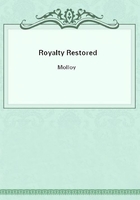
第9章 CHAPTER II.(1)
The story of the king's escape.--He accepts the Covenant and lands in Scotland.--Crowned at Scone.--Proclaimed king at Carlisle.--The battle of Worcester.--Bravery of Charles.--Disloyalty of the Scottish cavalry.--The Royalists defeated.
--The King's flight.--Seeks refuge in Boscobel Wood.--The faithful Pendrells.--Striving to cross the Severn.--Hiding in an oak tree.--Sheltered by Master Lane.--Sets out with Mistress Lane.--Perilous escapes.--On the road.--The king is recognised.
--Strange adventures.--His last night in England.
That King Charles had been miraculously preserved, as my Lord Manchester set forth, there can be no doubt. His courageous efforts to regain the Crown at the battle of Worcester and his subsequent escapes from the vigilant pursuits of the Cromwellian soldiers, would, if set down in justice and with detail, present a story more entertaining than any romance ever written. Here they must of necessity be mentioned with brevity.
In the year 1645, Charles I., having suffered the loss of many great battles, became fearful of the danger which threatened his family and himself. He therefore ordered his son Charles, who had already retired into the west, to seek refuge in the Scilly Isles. The prince complied with his desires, and went from thence to Paris, where his mother, Henrietta Maria, had already taken shelter, and, after a short stay with her, travelled to the Hague. Soon after the king was beheaded, the Scots, who regarded that foul act with great abhorrence, invited Charles to come into their kingdom, provided he accepted certain hard conditions, which left the government of all civil business in the hands of Parliament, and the regulation of all religious matters in charge of the Presbyterians. No other prospect of regaining his rights, and of enabling him to fight for his throne presenting itself, he accepted what was known as the Covenant, and landed in Scotland in 1650. He was received with the respect due to a monarch, but placed under the surveillance forced on a prisoner. The fanatical Presbyterians, jealous of that potent influence which his blithe ways exercised over all with whom he associated, neither permitted him to attend the council nor command the army;they, however, preached to him incessantly, admonished him of his sins and those of his parents, guarded him as a captive, and treated him as a puppet. Meanwhile Cromwell, being made aware of his presence in the kingdom, advanced at the head of a powerful body into Scotland, fought and won the battle of Dunbar, stormed and captured Leith, and took his triumphal way towards Edinburgh town. Charles was at this time in Perth, and being impatient at his enforced inaction whilst battles were fought in his name, and lives lost in his cause, made his escape from the Covenanters, with the determination of arousing the Royalists who lay in the north. But the Scots soon overtook and recaptured him. However, this decisive action awoke them to a better understanding of the deference due to his position, and therefore they crowned him at Scone on the first day of the year 1651, with much solemnity, and subsequently made him commander of the army.
After spending some months in reorganizing the troops, he boldly declared his intention of marching into England, and fighting the rebel force. Accordingly, on the 31st of July, 1651, he set out from Sterling with an army of between eleven and twelve thousand men. At Carlisle he was proclaimed king, and a declaration was published in his name, granting free grace and pardon to all his subjects in England, of whatever nature or cause their offences, saving Cromwell, Bradshaw and Cooke. He then marched to Lancashire, and on the 23rd of August unfurled the Royal standard at Worcester, amidst the enthusiastic acclamations of his troops and the loyal demonstrations of the citizens. Weary of civil strife, depressed with fear of Cromwell's severities, and distrustful of the Presbyterians, who chiefly composed the young king's army, the Royalists had not gathered to his standard in such numbers as he had anticipated. His troops, since leaving Scotland, had been reinforced merely by two thousand men; but Charles had hopes that fresh recruits would join him when news of the rising got noised abroad.
The Republicans were filled with dismay at the king's determined action, but were prompt to make a counter-move, Accordingly, additional troops were levied, London was left to be defended by volunteers, and Cromwell, heading an army of thirty-four thousand men, marched against the Royalists. On the 28th of August, they drew near Worcester, and on the 3rd of September the battle was fought which will remain for ever famous in the annals of civil war. On the morning of that day, the king, ascending the cathedral tower, saw the enemy's forces advancing towards Worcester: before reaching the city, it was necessary they should cross the Severn, and, in order to prevent this if possible, Charles hurried down and directed that some of his troops, under the command of Montgomery, should defend Powick Bridge; whilst he stationed others under Colonel Pitscottie lower down, at a point of the river towards which the Republicans were marching with pontoons, by means of which they intended to cross.